Fleurs du Mal Magazine


Or see the index
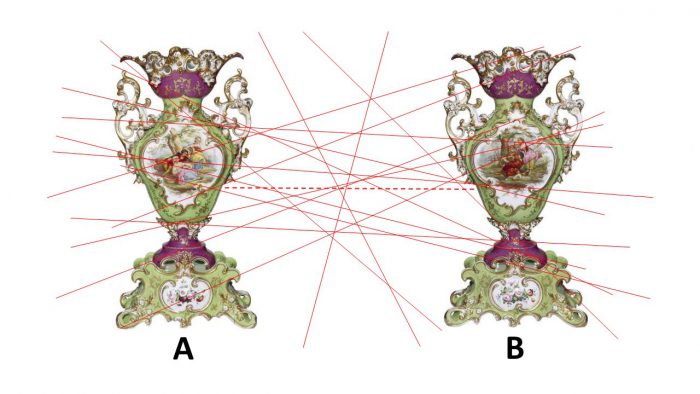
Sérgio Monteiro de Almeida
Poema visual: Pair of vases #1
Sérgio Monteiro de Almeida, Curitiba, Brazil (1964).
Intermedia visual poet and conceptual artist
Sérgio Monteiro de Almeida cv:
Curitiba, Brazil (1964). Intermedia visual poet and conceptual artist. – He has published in numerous anthologies and specialized magazines in Brazil and outside; participated in exhibitions of visual poetry as International Biennial of Visual and Alternative Poetry in Mexico (editions from 1987 to 2010); Post-Art International Exhibition of Visual / Experimental Poetry, San Diego State University-USA (1988); 51 and 53 Venice Biennial (2005 and 2009). – He published in 2007 the book Sérgio Monteiro de Almeida with a global vision about his work as a visual artist and poet. – This book was incorporated into the “Artist Books” collection of the New York City Library (USA). – Author of the CD of kinetic visual poems (EU) NI/IN VERSO (still unpublished). – He presented urban interventions in Curitiba, San Diego, Seattle, New York, Paris, Rome. – In 2014 and 2015 visual poems published in the Rampike experimental literature magazine of the University of Windsor, Canada. – He recently had his poems published in Jornal Candido (n. 64) and Relevo (2015 and 2016), and in 2017 in: fleursdumal.nl magazine for art & literature (www.fleursdumal.nl).
More about his work:
Livro eletrônico http://issuu.com/boek861/docs/sergio_monteiro_libro;
Enciclopédia Itaú Cultural de artes visuais www.itaucultural.com.br;
Videos no Youtube: http://www.youtube.com/user/SergioMAlmeida
Sérgio Monteiro de Almeida
Curitiba – PR – Brazil
email: sergio.ma@ufpr.br
• fleursdumal.nl magazine
More in: #Editors Choice Archiv, *Concrete + Visual Poetry P-T, Archive M-N, Archive M-N, Sérgio Monteiro de Almeida

ARMOE
‘k Heb zoo’n honger naar een lied
In dit huis van eenzaam wezen,
Waar ‘k nog in geen blik mocht lezen
Dat een mensch me geren ziet.
‘t Kloksken tikt melankoliek…,
‘t maakt me monotoon en kranke,
God, ik smacht naar dieper klanken,
‘k Heb zoo’n honger naar muziek…
Ach…, En zoo ‘k mezelve sus
Met een blom of een gebêken…
Ziet ge niet mijn lippen smeeken…
‘k Heb zoo’n honger naar een kus!
Leven, dat ik lieven moet,
Leven… kunt ge zoo me laten
Zonder liefde… zonder haten…?
‘k Heb zoo’n honger naar uw gloed.
Alice Nahon
(1896-1933)
Armoe
• fleursdumal.nl magazine
More in: Archive M-N, Archive M-N, Nahon, Alice

ZAADMAAND
Daar stond een late zonnebloem
Te sterven in de laatste zon;
En niemand in de wereld,
Die haar nog helpen kon.
Een mensenhand gerimpeld
En door geen werk vergroofd,
Die sneed van ‘t mager halske
Dat beu-gebogen hoofd.
En op z’n smalle vingren
Woog het van zaden zwaar.
Ze hebben elkaar bekeken
En hij werd bang van haar.
En schouwend in zich zelve,
Voelend z’n groot verval:
“Zal ik zo prachtig wezen,
Als God mij plukken zal?”
Alice Nahon
(1896-1933)
Zaadmaand
• fleursdumal.nl magazine
More in: Archive M-N, Archive M-N, Nahon, Alice

Ave Maria
Es will das Licht des Tages scheiden;
Nun bricht die stille Nacht herein.
Ach, könnte doch des Herzens Leiden
So, wie der Tag vergangen sein!
Ich leg’ mein Flehen dir zu Füßen;
O, trag’s empor zu Gottes Thron,
Und laß, Madonna, laß dich grüßen
Mit des Gebetes frommem Ton:
Ave, ave Maria!
Es will das Licht des Glaubens scheiden;
Nun bricht des Zweifels Nacht herein.
Das Gottvertrau’n der Jugendzeiten,
Es soll mir abgestohlen sein.
Erhalt’, Madonna, mir im Alter
Der Kindheit frohe Zuversicht;
Schütz’ meine Harfe, meinen Psalter;
Du bist mein Heil, du bist mein Licht!
Ave, ave Maria!
Es will das Licht des Lebens scheiden;
Nun bricht des Todes Nacht herein.
Die Seele will die Schwingen breiten;
Es muß, es muß gestorben sein.
Madonna, ach, in deine Hände
Leg’ ich mein letztes, heißes Fleh’n:
Erbitte mir ein gläubig Ende
Und dann ein selig Aufersteh’n!
Ave, ave Maria!
Karl May
(1842-1912)
Ave Maria
• fleursdumal.nl magazine
More in: Archive M-N, Archive M-N, Karl May
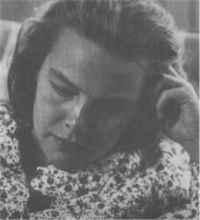
Lullaby
Sleep, little architect. It is your mother’s wish
That you should lave your eyes and hang them up in dreams.
Into the lowest sea swims the great sperm fish.
If I should rock you, the whole world would rock within my arms.
Your father is a greater architect than even you.
His structure falls between high Venus and far Mars.
He rubs the magic of the old and then peers through
The blueprint where lies the night, the plan the stars.
You will place mountains too, when you are grown.
The grass will not be so insignificant, the stone so dead.
You will spiral up the mansions we have sown.
Drop your lids, little architect. Admit the bats of wisdom into your head.
Joan Murray
(1917-1942)
Lullaby
Poems 1917-1942
New Haven: Yale University Press, 1975
• fleursdumal.nl magazine
More in: Archive M-N, Archive M-N, Joan Murray

Gettysburg
O Pride of the days in prime of the months
Now trebled in great renown,
When before the ark of our holy cause
Fell Dagon down-
Dagon foredoomed, who, armed and targed,
Never his impious heart enlarged
Beyond that hour; God walled his power,
And there the last invader charged.
He charged, and in that charge condensed
His all of hate and all of fire;
He sought to blast us in his scorn,
And wither us in his ire.
Before him went the shriek of shells-
Aerial screamings, taunts and yells;
Then the three waves in flashed advance
Surged, but were met, and back they set:
Pride was repelled by sterner pride,
And Right is a strong-hold yet.
Before our lines it seemed a beach
Which wild September gales have strown
With havoc on wreck, and dashed therewith
Pale crews unknown-
Men, arms, and steeds. The evening sun
Died on the face of each lifeless one,
And died along the winding marge of fight
And searching-parties lone.
Sloped on the hill the mounds were green,
Our centre held that place of graves,
And some still hold it in their swoon,
And over these a glory waves.
The warrior-monument, crashed in fight,
Shall soar transfigured in loftier light,
A meaning ampler bear;
Soldier and priest with hymn and prayer
Have laid the stone, and every bone
Shall rest in honor there.
Herman Melville
(1819 – 1891)
Gettysburg
• fleursdumal.nl magazine
More in: Archive M-N, Archive M-N, Herman Melville, WAR & PEACE

Survivors—Found
We thought that they were gone—
we rarely saw them on our screens—
those everyday Americans
with workaday routines,
and the heroes standing ready—
not glamorous enough—
on days without a tragedy,
we clicked—and turned them off.
We only saw the cynics—
the dropouts, show-offs, snobs—
the right- and left- wing critics:
we saw that they were us.
But with the wounds of Tuesday
when the smoke began to clear,
we rubbed away our stony gaze—
and watched them reappear:
the waitress in the tower,
the broker reading mail,
a pair of window washers,
filling up a final pail,
the husband’s last “I love you”
from the last seat of a plane,
the tourist taking in a view
no one would see again,
the fireman, his eyes ablaze
as he climbed the swaying stairs—
he knew someone might still be saved.
We wondered who it was.
We glimpsed them through the rubble:
the ones who lost their lives,
the heroes’ double burials,
the ones now “left behind,”
the ones who rolled a sleeve up,
the ones in scrubs and masks,
the ones who lifted buckets
filled with stone and grief and ash:
some spoke a different language—
still no one missed a phrase;
the soot had softened every face
of every shade and age—
“the greatest generation” ?—
we wondered where they’d gone—
they hadn’t left directions
how to find our nation-home:
for thirty years we saw few signs,
but now in swirls of dust,
they were alive—they had survived—
we saw that they were us.
Joan Murray
(1917-1942)
Survivors—Found
(poem)
• fleursdumal.nl magazine
More in: Archive M-N, Archive M-N, Joan Murray
First complete translation into English by Kathleen McNerney and Helena Buffery ⊕ Contains the most beautiful prose I’ve ever read in Catalan – Anna Murià, novelist and translator
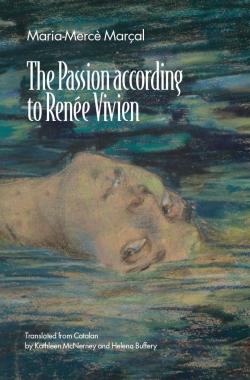 In this often poetic and lyrical novel by the revered Catalan poet Maria-Mercè Marçal, we are taken on a journey through the multiple, mobile and contradictory life, letters and loves of the fin-de-siècle Anglo-French writer, Pauline Tarn-Renée Vivien, as researched and reimagined by two principal narrators – a 1980s Catalan documentary film-maker Sara T. and a 1920s French archaeology scholar and museologist Salomon Reinach – alongside the voices of the various friends, relations, lovers, companions and servants who made her acquaintance at different moments in her life.
In this often poetic and lyrical novel by the revered Catalan poet Maria-Mercè Marçal, we are taken on a journey through the multiple, mobile and contradictory life, letters and loves of the fin-de-siècle Anglo-French writer, Pauline Tarn-Renée Vivien, as researched and reimagined by two principal narrators – a 1980s Catalan documentary film-maker Sara T. and a 1920s French archaeology scholar and museologist Salomon Reinach – alongside the voices of the various friends, relations, lovers, companions and servants who made her acquaintance at different moments in her life.
In the process, we are presented with a compelling reconstruction of the Belle Époque and interwar years in Paris, alongside other key sites in this transformational literary geography – Nice, Bayreuth, Switzerland, Istanbul, and the island of Lesbos – that include often dazzling evocations of other cultural figures and influencers of the age, from Zola to Pierre Louÿs and Remy de Gourmont, Liane de Pougy to Mathilde de Morny and Colette, not forgetting the central figure of Natalie Clifford-Barney, the ‘Amazone’.
Maria-Mercè Marçal:
The Passion according to Renée Vivien
Translation into English by Kathleen McNerney and Helena Buffery
Francis Boutle publishers
ISBN 9781916490659
Language: English
Format: paperback
Number of pages 354
£12
»» website Francis Boutle publishers
# new books
Maria-Mercè Marçal:
The Passion according to Renée Vivien
• fleursdumal.nl magazine
More in: - Book News, - Book Stories, Archive M-N, Archive U-V, Archive U-V, Émile Zola, Renée Vivien, Vivien, Renée
 The Silent Woman is a brilliant, elegantly reasoned meditation on the nature of biography.
The Silent Woman is a brilliant, elegantly reasoned meditation on the nature of biography.
Janet Malcolm (author of Reading Chekhov, The Journalist and the Murderer, In the Freud Archives) examines the biographies of Sylvia Plath, with particular focus on Anne Stevenson’s controversial Bitter Fruit, to discover how Plath became the enigma of literary history, and how the legend continues to exert such a hold on our imaginations.
Janet Malcolm‘s books include Reading Chekhov, In the Freud Archives, The Silent Woman: Sylvia Plath and Ted Hughes and Psychoanalysis: The Impossible Profession. Born in Prague, she grew up in New York, where she now lives.
“One of the deepest, loveliest, and most problematic things Janet Malcolm has written. It is so subtle, so patiently analytical, and so true that it is difficu’lt to envisage anyone writing again about Plath and Hughes.” Guardian
The Silent Woman
by Janet Malcolm
Published: 02/04/2020
ISBN: 9781783786237
Granta Books
224 pages
Paperback
£10
# more biographies
• fleursdumal.nl magazine
More in: #Biography Archives, - Book News, - Book Stories, Archive M-N, Sylvia Plath
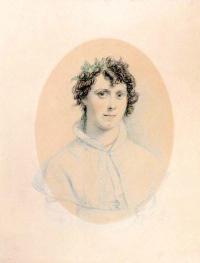
Love
Oh Love! how fondly, tenderly enshrined
In human hearts, how with our being twined!
Immortal principle, in mercy given,
The brightest mirror of the joys of heaven.
Child of Eternity’s unclouded clime,
Too fair for earth, too infinite for time:
A seraph watching o’er Death’s sullen shroud,
A sunbeam streaming through a stormy cloud;
An angel hovering o’er the paths of life,
But sought in vain amidst its cares and strife;
Claimed by the many–known but to the few
Who keep thy great Original in view;
Who, void of passion’s dross, behold in thee
A glorious attribute of Deity!
Susanna Moodie:
Love (Poem)
(1803 – 1885)
• fleursdumal.nl magazine
More in: Archive M-N, Archive M-N, CLASSIC POETRY
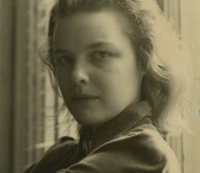
Vermont and the Hills and the Valleys
1
Tremendous are the ways of the simple people,
The hills speak with their mouths,
The sky laughs out the rims of their eyes,
The earth walks with the feet of the people
And the wind and the dead are their souls awake
And the sleep, that is theirs comes when the eye-lid
Slips down to meet the soiled slant of their cheeks.
2
Great are the mountain slopes curving along the line
Flanked by the river or the smooth-glint track of train:
A speed of smoke, a sprung-coil loosely heaped beyond the span of steel.
Look to right — look to the left and the fields
That fit in languid patterns between trees,
Umber cornstalks, hay in warm-split stacks!
3
Tight is the hair of women who call cows to the milking,
Wrists and fingers playing out the movement of the udder-press.
White is the angle and the piss and splash of milk.
Let it be remembered, O, let it be remembered
That there are the women and the simple people!
4
The oxen plow and wagon the hay in its high dung-gold,
Making long horns shape and hold the moon,
The red of their sides squat.
The green of the trees spring in wide green waves to the wind,
To the fields and the wide-palmed spread of space.
5
The men are before the night:
With the cracks of their cheeks filled with dust,
And the hands heavy like listless takes swung down,
And the dirt and sweat on their lips,
And the rise and fall of their chests.
6
The women go from the milking to the pot without compunction.
Steps of men and women from the field to the home,
From the plow to the reaping in the deep high swell of wheat.
There are the simple people
Whose hands rest still on a Sabbath,
And great are the fields and the mountains,
And great are the slopes and the valleys.
Joan Murray
(1917-1942)
Vermont and the Hills and the Valleys
(poem)
• fleursdumal.nl magazine
More in: Archive M-N, Archive M-N, Joan Murray

Chrysalis
1
It’s mid-September, and in the Magic Wing Butterfly Conservancy
in Deerfield, Massachusetts, the woman at the register
is ringing up the items of a small girl and her mother.
There are pencils and postcards and a paperweight–
all with butterflies–and, chilly but alive,
three monarch caterpillars–in small white boxes
with cellophane tops, and holes punched in their sides.
The girl keeps rearranging them like a shell game
while the cashier chats with her mother: “They have to
feed on milkweed–you can buy it in the nursery outside.”
“We’ve got a field behind our house,” the mother answers.
The cashier smiles to show she didn’t need the sale:
“And in no time, they’ll be on their way to Brazil or Argentina–
or wherever they go–” (“to Mexico,” says the girl,
though she’s ignored) “and you can watch them
do their thing till they’re ready to fly.”
2
I remember the monarchs my son and I brought in one summer
on bright pink flowers we’d picked along the swamp
on Yetter’s farm. We were “city folks,” eager for nature
and ignorant–we left our TV home–and left the flowers
in a jar on the dry sink in the trailer. We never noticed the caterpillars
till we puzzled out the mystery of the small black things
on the marble top–which turned out to be their droppings.
And soon, three pale green dollops hung from the carved-out leaves,
each studded with four gold beads–so gold they looked to be
mineral–not animal–a miracle that kept us amazed
as the walls grew clear and the transformed things broke through,
pumped fluid in their wings, dried off–and flew.
I gauge from that memory that it will be next month
before the girls are “ready.” I wonder how they’ll “fly”
when there’s been frost. “And they’ll come back next summer,”
the cashier says, “to the very same field–they always do.”
I’m sure that isn’t true. But why punch holes
in our little hopes when we have so few?
3
Next month, my mother will have a hole put in her skull
to drain the fluid that’s been weighing on her brain.
All summer, she’s lain in one hospital or another–
yet the old complainer’s never complained.
In Mather, the woman beside her spent a week in a coma,
wrapped like a white cocoon with an open mouth
(a nurse came now and then to dab the drool).
My mother claimed the woman’s husband was there too–
“doing what they do”–though it didn’t annoy her.
Now she’s in Stony Brook–on the eighteenth floor.
I realize I don’t know her anymore. When she beat against
the window to break through, they had to strap her down
–and yet how happy and how likeable she’s become.
When I visit, I spend my nights in her empty house–
in the bed she and my father used to share. Perhaps they’re
there. Perhaps we do come back year after year
to do what we’ve always done–if we can’t make
our way to kingdom come, or lose ourselves altogether.
Joan Murray
(1917-1942)
Chrysalis
(poem)
• fleursdumal.nl magazine
More in: Archive M-N, Archive M-N, Joan Murray
Thank you for reading Fleurs du Mal - magazine for art & literature